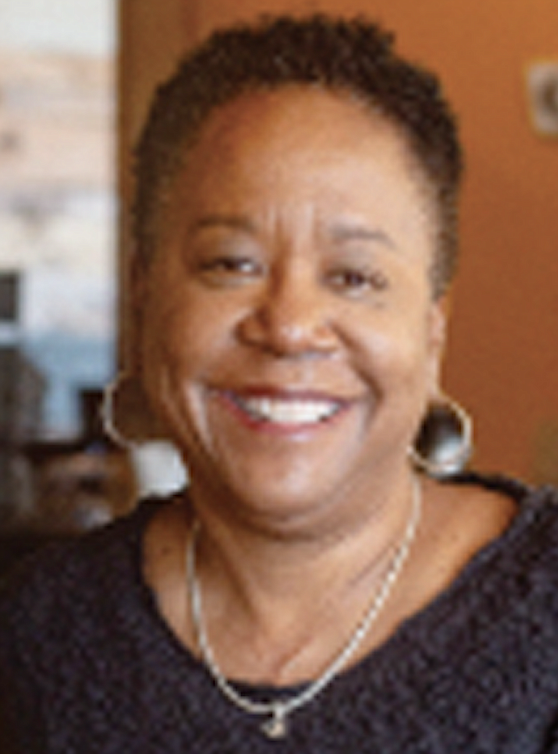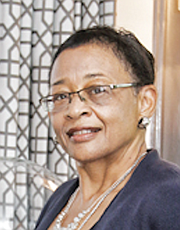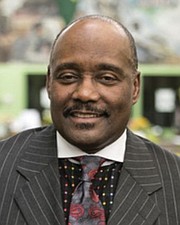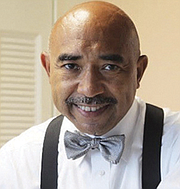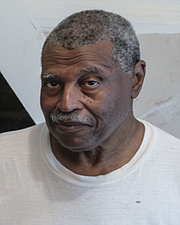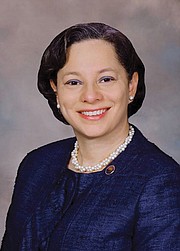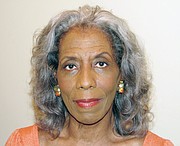Reflections about Roland ‘Duke’ Ealey
He ‘was very much a Richmond fixture and everybody who knew him respected him’
Debora Caserta Timms and George Copeland Jr. | 11/16/2023, 6 p.m.
Jody Lynn Allen, a history professor and the Robert Francis Engs director of The Lemon Project at The College of William & Mary, is eager to learn what Mr. Ealey’s papers reveal about civil rights in regions outside of the Lower South.
“I know as a historian myself; I’m salivating just thinking about it,” she said.
Ms. Allen explained that getting this fuller picture can help correct some of the miseducation and misperceptions about the past that have led to the push to control teaching African-American history in schools and libraries.
“What’s happening now is a direct impact of not knowing the full story, and a direct impact of wanting to silence what we do know.”
Ms. Allen also is interested in learning whether Mr. Ealey’s papers shed light on the 1968 case of Green v. New Kent County. She currently is working on a documentary,
“The Green Light,” about the people involved in the case which pushed to desegregate schools that remained largely segregated in Virginia more than a decade after Brown v. Board of Education.
“I think the story is never finished,” Ms. Allen said. “This information is always coming in different ways. That’s one of the things that makes this so exciting. It sheds light on the fact that there are stories there. When we find them, we need to use them well."
When Viola Osborne Baskerville learned that dozens of boxes containing Roland “Duke” Ealey’s legal documents had been found, she grew excited imagining what the discovery will reveal about the “intensity of his legislative ability.
“Often the work and the legislative history of Black politicians have not been lifted up to the extent they needed to be,” said Ms. Baskerville, a retired attorney who served in the Virginia House of Delegates from 1998 to 2005. She also was secretary of administration from 2006 to 2010 under former Virginia Gov. Timothy M. “Tim” Kaine.
“I am hoping these documents will really lift up and trace [Mr. Ealey’s] evolution and his focus on issues that were important, not only to African-Americans, but to people who were similarly situated whether it was economically or politically,” Ms. Baskerville continued. “He was very much a Richmond fixture and everybody who knew him respected him.”
Ms. Baskerville said that when the documents become accessible to the public, they will give “a window into history from a particularly unique perspective — that of a Black man who was a legislator and an attorney who fought for civil rights.
LaMont Clayton, 70, is excited about the discovery of Roland J. Ealey’s documents and memorabilia, and about the greater recognition it will bring to his uncle.
“I think it’s great. I’m very, very happy that the documents were found and now that they’re trying to restore them,” Mr. Clayton said about the documents, many of which can shed light on school desegregation and other civil rights issues in Virginia.
He says that he and his family are supportive of the efforts being made to preserve and archive the historical find.
“We need to bring it out and just let everybody know his contribution as a lawyer, as a lawmaker and as a Sunday School teacher at First African Baptist Church,” Mr. Clayton added. “There are a lot of things
about him that need to be told and known."
“The Roland ‘Duke’ Ealey papers represent a portal to pigment punishment meted out in the Capital of the Confederacy, during the 1940s through the 1980s,” said Richmond radio personality and historian Gary Flowers. “In response, he joined a cadre of counselors litigating and legislating justice in the courts and chambers of the (Virginia) State Capitol.”
Mr. Flowers explained that Virginia’s white power structure would only allow one or two Black lawyers to pass the bar during Mr. Ealey’s early days as an attorney. An example included Mr. Flowers’ aunt, Ethel Crawford Ellison who passed the state bar in 1954. But as more Black lawyers passed the bar, more cases were filed opposing desegregated public schools and universities, he noted.
Mr. Flowers also believes that a certain level of elitism among some of Mr. Ealey’s contemporaries is why he did not receive as much acclaim as other civil rights lawyers of his day.
As a child, historical photographer Theodore Holmes grew up not far from where Roland Ealey practiced law.
He was one of those who saw some of Mr. Ealey’s paperwork himself following its discovery by Jim Vigeant and Sasha Finch in the same Jackson Ward neighborhood where he still lives today.
“We went through those papers, those boxes for two years,” the now 71-year-old Mr. Holmes said in a recent interview.
Among the civil rights papers he saw was a letter corresponding with Sen. Harry F. Byrd Sr., who represented Virginia from 1933 to 1965.
“You see they were strategizing at various points and I thought those papers were interesting,” Mr. Holmes said.
“Having been a child at the time and living through it, to see some of the work that was unbeknownst to me as a kid, some of the networking and communication that was going on between Mr. Ealey and the NAACP, lawyers and a tremendous amount of people - it’s kind of amazing to actually see the paperwork.”
Mr. Holmes shared his belief that there should be more public awareness of Mr. Ealey and the work he accomplished.
“He needs the light to be shined on him. He needs to be given a space next to Arthur Ashe or Maggie Walker,” Mr. Holmes said. “Hopefully people will learn who he is and all the good things that he did.”
When informed about the discovery of Roland “Duke” Ealey’s legal papers in a Jackson Ward home, Virginia 4th District Congresswoman Jennifer L. McClellan immediately acknowledged her thirst for history.
“You know, I’m a huge history buff,” she said. “I would love to get my hands on them one day and kind of read through them.”
Rep. McClellan says she often uses original text and primary sources in articles that she writes for various publications.
An example is an essay that she wrote about voter discrimination in the January 2023 issue of the Richmond Public Interest Law Review, a publication of the University of Richmond.
“Unfortunately for a lot of primary documents, it’s often only one side of the story and it’s predominately white,” she said. “I think having primary sources from such a prominent civil rights attorney and pioneer among the Legislative Black Caucus adds a more complete picture to the civil rights story, to the history of Virginia and to the history of the legislature.”
Activist, genealogist and retired attorney Bessida Cauthorne White has fond memories of Roland “Duke” Ealey.
“When I got to know him, it was about 1980 or so,” the Middlesex County resident said during a recent telephone conversation.
“He was one of my favorite people actually. Duke was such a quiet and unassuming individual, so one had no concept — even for those of us who knew him — of his full body of work. So, I’m just delighted to know that his work survived.”
Mrs. Cauthorne White noted that Mr. Ealey practiced law during a time of great change in the United States.
“From a community historians’ perspective, there’s that view of Richmond and beyond,” she explained. “I know that Black attorneys were somewhat few and far apart, so Duke’s reach was probably across the state.”
While Mr. Ealey’s work spanned an important period in history and he was involved in milestone cases, Mrs. Cauthorne White wants to learn more about his everyday cases as well.
“I know he was involved in work that could have been called mundane, but it wouldn’t have been mundane to the people whose lives were affected,” she said. “He was involved in work for ordinary people with ordinary matters that were important to them. Just to shine a spotlight on that is exciting."
Want to be a part of The Ealey Project?
The Ealey Project (TEP) would like to hear from anyone who knew Roland J. “Duke” Ealey and Bessie
Mae Binford Ealey. TEP also wants to hear from anyone who has a story to share about life in Jackson Ward, Richmond and the Commonwealth of Virginia between the years 1940 and 1992. The stories will be part of an oral history of African-American individuals who lived in Jackson Ward between 1940 and 1992. For more information, please email james@tep.ngo, or call (804)-334-8334.

